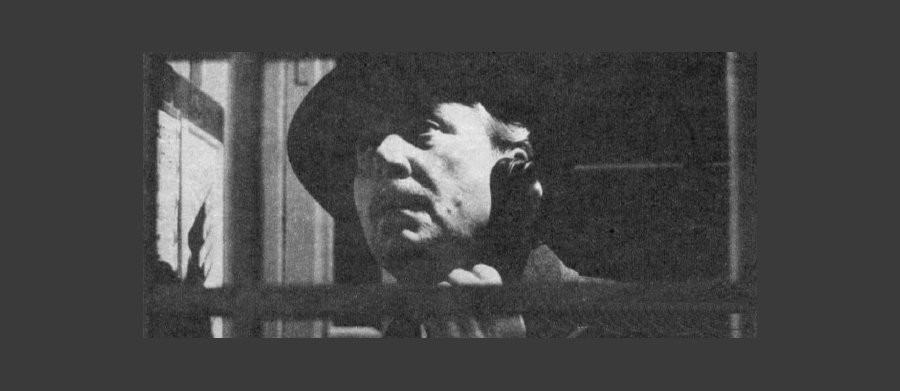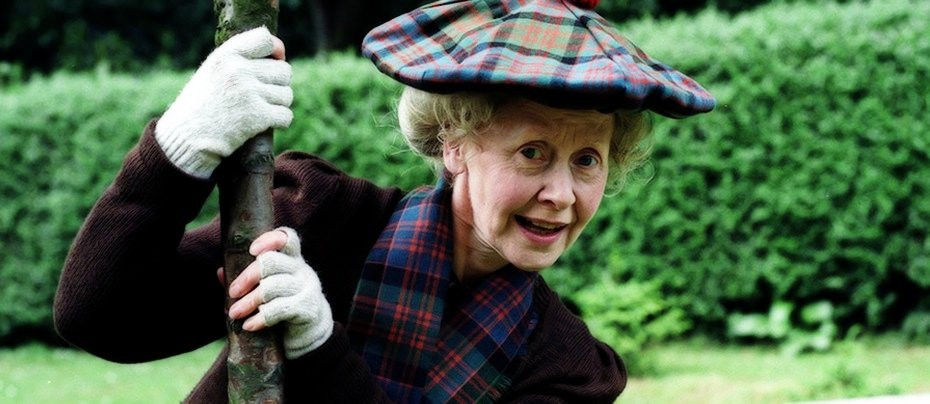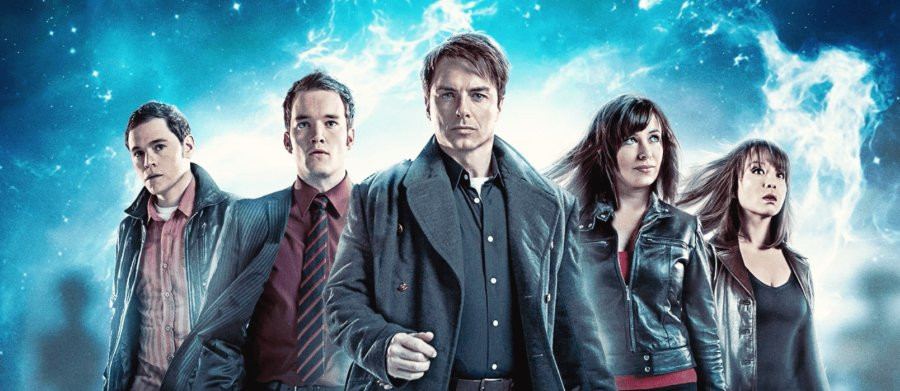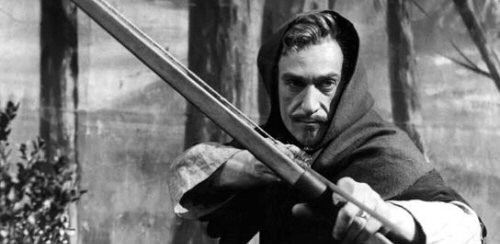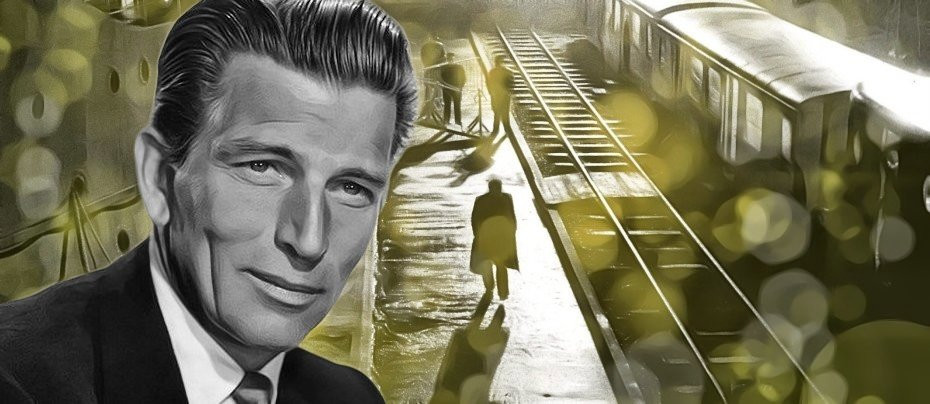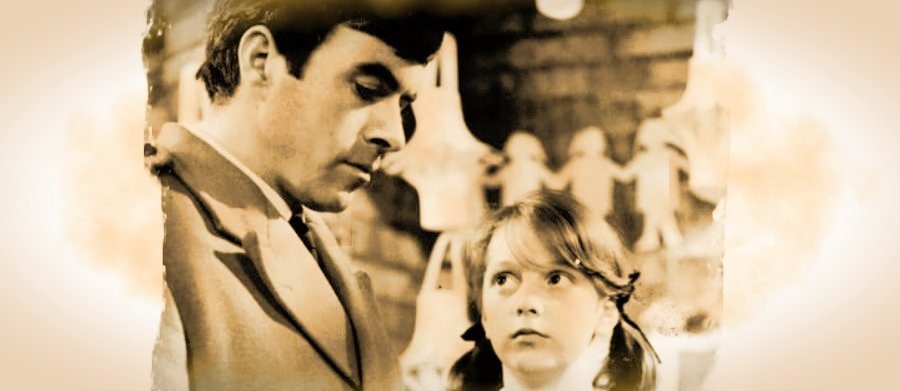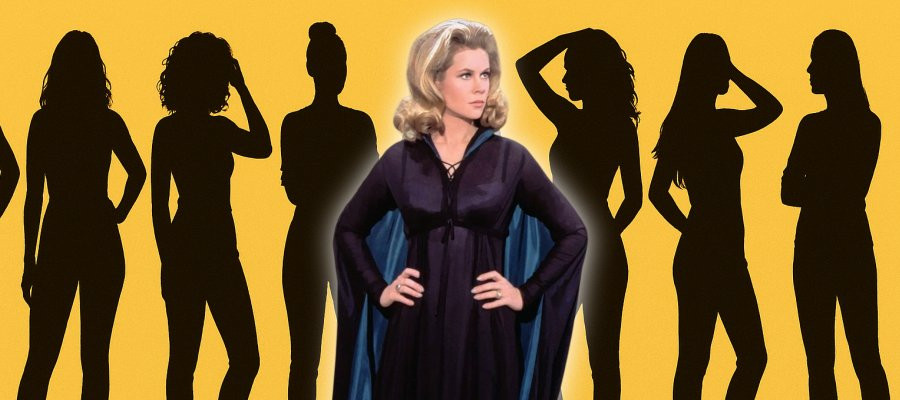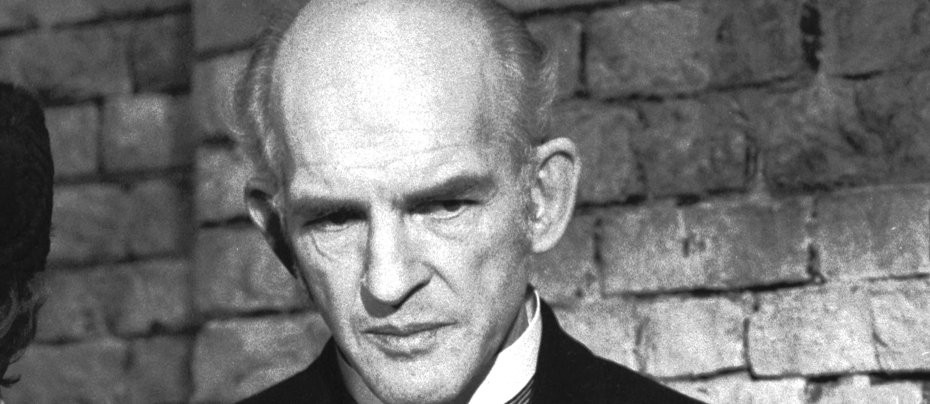The Three Doctors
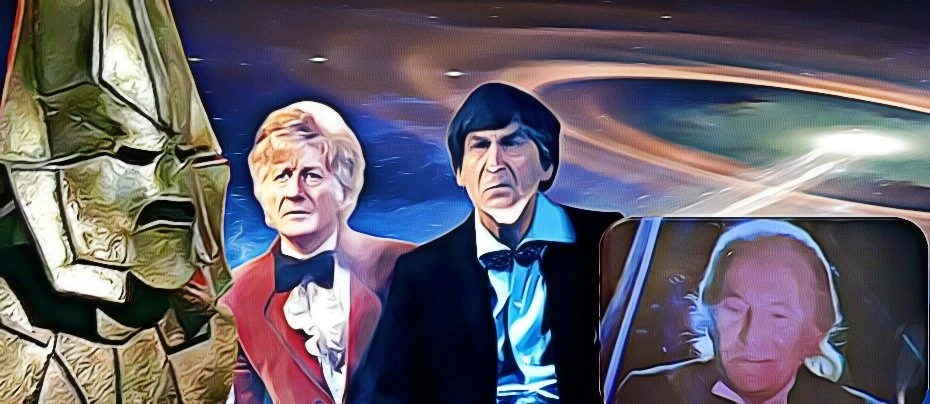
The first thing to remember about The Three Doctors is that it is not the tenth anniversary special. It's actually far too early for that, with episode one being broadcast about five weeks after the series' ninth anniversary. No, The Three Doctors marks the start of Doctor Who's tenth season, which isn't quite the same thing. Still, the party atmosphere is evident throughout, even if it's not quite for the reason people remember.
Multi-Doctor stories are well-established these days, usually being reserved for special occasions (at least on television – Big Finish seems to crank one out every few months). They're so well established that it's hard to imagine as a modern viewer just how big a deal this must have been for those watching at the time. The most similar in the recent past is the fiftieth-anniversary story The Day of the Doctor, another special occasion event that had the current version enjoying an argumentative adventure with the previous one, with a third version along in a more abstract fashion. (A reduced role for William Hartnell in The Three Doctors, the sudden, retconning arrival of John Hurt in Day.) Even then, though, it had been easy for die-hard fans to revisit earlier eras any time they like and enjoy previous team-ups.
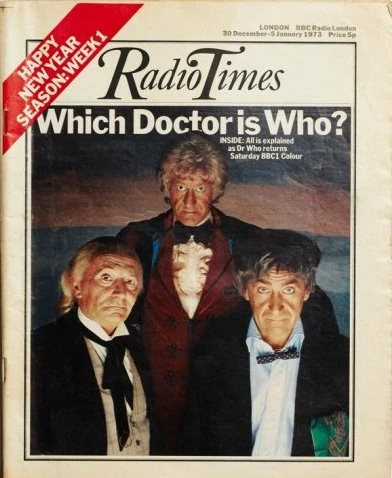
The Three Doctors existed in a very different landscape. If someone wants to see David Tennant as the Doctor in 2022, they need only slip in a DVD or log in to the relevant streaming service. In 1972, there had barely even been a repeat of Doctor Who, and certainly not of an episode featuring the previous version. Jon Pertwee had been the Doctor for almost three years by this point, and Patrick Troughton hadn't appeared in the role since 1969. Hartnell had left three years before that. There were kids watching then who hadn't been born when Hartnell last appeared in the programme. The only visual indication of earlier versions had come at the start of the previous season, when the Doctor's mind was probed in Day of the Daleks, and viewers had briefly seen his previous two selves. Plenty of younger viewers had no idea there even were earlier Doctors.
Of course, plenty of viewers did, and had loved the programme, even grown up during, either Hartnell or Troughton's tenures. As popular as Pertwee was, there were committed fans who remained loyal to either of his predecessors. So, yes, this was a big deal. For the first time, not only were the Doctors taking part in an adventure together, but the differences between them were put under the magnifying glass. Previously, the comparisons were only made immediately after a change in lead, as in 1966's The Power of the Daleks, when the original Doctor had transformed into Troughton's scruffy newcomer, and his two companions were drastically wrong-footed by this “very different Doctor," or with Pertwee's appearance perturbing the Brigadier in 1970's Spearhead from Space.
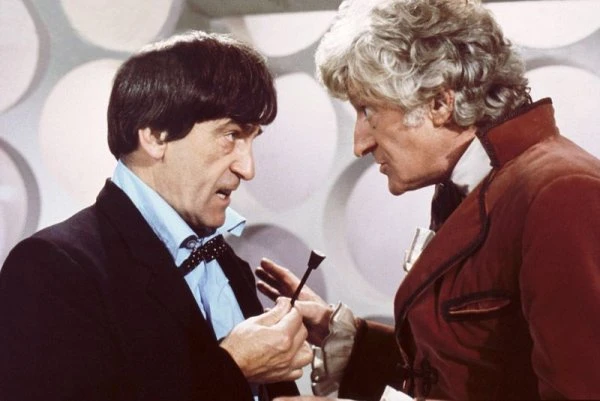
As with The Power of the Daleks, there's a real uncertainty as to just how much these different Doctors are the same man having changed forms, and how much they are separate individuals linked by experience. Neither Pertwee's Third Doctor nor Troughton's Second get on very well, yet both stand and listen to the First, even as he berates them for their ineffectual handling of the situation. Both the later Doctors insist that this older version is “Me! ME!” as if somehow he isn't both of them. Hartnell, for the first time playing the First Doctor, rather than simply the Doctor (as there had been no need of a qualifier when he was in the starring role), is wise but curmudgeonly, frustrated with having to deal with “a dandy and a clown.” Troughton plays his Doctor as especially impish and cheeky, using distraction techniques and aggravating his enemies to test their self-control. Pertwee plays him more as a straight hero, and his Doctor is utterly baffled by his own earlier self's tactics and meanderings, even though he actually was him only a few years before. The Doctors' existing differences are magnified now that they are placed together.
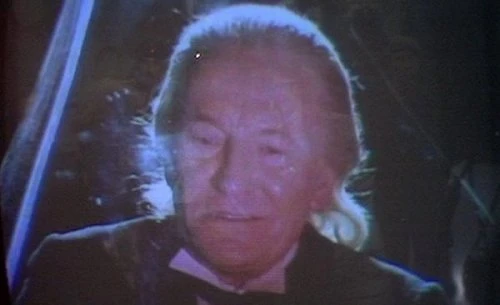
It's a real shame then, that in the event Hartnell's health had deteriorated so badly that he was unable to film in the studio alongside his successors. It's reported that his memory problems had reached the point that he could no longer memorise his lines. As such, Hartnell, visibly frail, recorded all of his material separately on film, these segments being beamed into the TARDIS so that he could advise his successors, rather than actually have him take part in the adventure.
In an odd way, though, this rather suits the nature of the story. As the elder statesman, for whom the Second Doctor remarks he's “always had a lot of respect,” it's perhaps fitting that the First Doctor sits out all the messy running around and shouting, and takes on a more mentorly, indeed, grandfatherly role. He still got to take part in a photo shoot with Pertwee and Troughton, and from the looks of the pictures, he was having a ball.
It's down to the Second and Third Doctors, then, to take care of the adventuring side of things, and there isn't quite enough to go round. This is actually rather wonderful, establishing a kind of “this TARDIS ain't big enough for the both of us” rivalry between the two incarnations. This would continue in 1983's The Five Doctors, and off-screen, a good-natured rivalry would be a feature of events attended by both Troughton and Pertwee. Art was, in many ways, mimicking life, as the precise and well-rehearsed Pertwee clashes with Troughton's more seat-of-the-pants acting style. There are certainly moments when Pertwee looks personally aggrieved at the fellow who used to have his job coming in and stealing his thunder. Reportedly, writers Bob Baker and David Martin were instructed to be very careful when scripting, to ensure it was always clear that Pertwee was still the star of the show.
Among all this inter-Doctor tomfoolery, there is, in fact, a plot. One thing that you can never accuse Baker and Martin of is not having big ideas. Having had their wilder ideas thrown out (which included the Doctors being killed and battling the forces of evil in the realm of the dead), the writers settled on an almost sane storyline, one which, as befits a big event, revealed an awful lot more about the Doctor and his people.
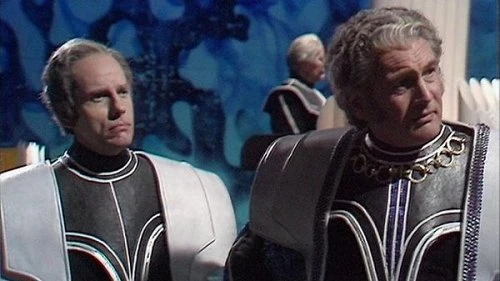
The Time Lords are threatened when a black hole begins to drain their (as yet unnamed) planet's power. The story continually cuts away to Roy Purcell, Clyde Pollitt and Graham Leaman as senior Time Lords in an increasingly dark room in the Time Lord headquarters. The first two are revealed as the Time Lord President and Chancellor respectively, so it's clear we're dealing with serious business here. In a nice example, Pollitt and Leaman played Time Lords in The War Games (1969) and Colony in Space (1971) respectively.
Meanwhile, some kind of energy beam, travelling faster than light (which is impossible) deposits a sort of blob in the English countryside which starts abducting people off to who-knows-where as it searches for the Doctor. Panicking, the Time Lords decide to send their man on the ground to fix things, and for good measure, recruit his two former selves to help. They use their last reserves of power to snatch the Doctors from their adventures, but only Doctor Two makes it through to UNIT HQ. The First Doctor is trapped in some kind of “time eddy,” but can still sporadically communicate with his other selves through the TARDIS (which is impossible).
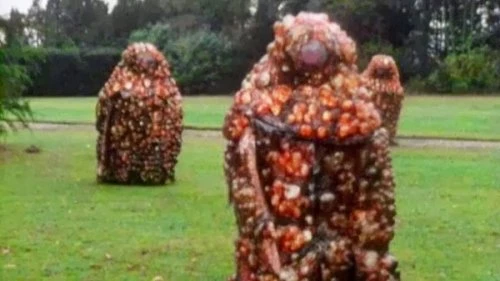
The glitchy blobs are revealed to be made from antimatter (which is impossible), and eventually turn into big blobs who besiege UNIT HQ, eventually making off with the whole thing, TARDIS, Doctors, companions and all. They find themselves inside the black hole, in a universe of antimatter, having been converted from matter so that they can continue to exist there (this is all impossible). In this world they encounter Omega, the engineer who started the Time Lords by creating the singularity that powers Time Lord civilisation. Believed destroyed, he survived within the singularity, where he has the ultimate power to create and destroy by will alone, but can never leave (this is... well, you get the idea).
It's heady stuff, with just enough scientific content to make the fantasy nonsense sound plausible, and would no doubt look incredible in a production with some kind of budget. Unfortunately, this is Doctor Who, and the production team doesn't really have the means to bring the writers' vision to life. So we end up with blobs at first realised as crackly video effects, which look rather ropey now but weren't so bad for the early seventies. However, when they manifest physically, they turn into actors in shapeless costumes seemingly made from coloured bubble wrap, who shamble around making “blob-a-dob... blobba-blobba-dob” noises.
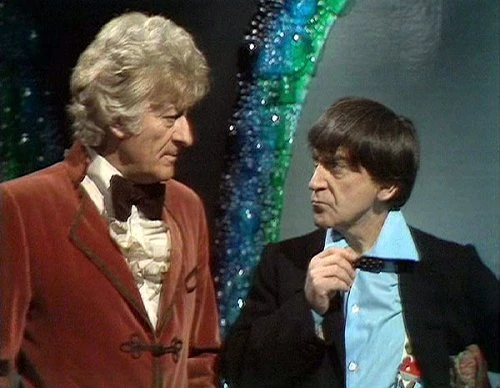
Omega, in spite of his incredible and seemingly limitless power within his own world, seems rather lacking in imagination. Said world is filmed, in true Doctor Who tradition, in a big quarry. His dimly lit fortress is rather better, being a glam rock plastic nightmare, but the tenuous suspension of disbelief is finally lost altogether when the doorway between states of existence, the singularity itself, is revealed to be a gentle column of steam emanating from a small hole in the studio floor.
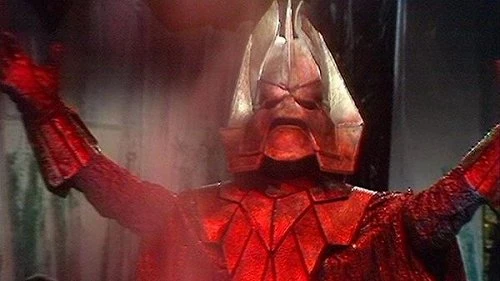
Omega himself is a fascinating concept for a villain. Quite understandably angry at the Time Lords for leaving him trapped alone in a black hole for a million years and used to having his indomitable will obeyed by the very fabric of his own little universe, Omega is perhaps Doctor Who's purest megalomaniac. Stephen Thorne, known before and since for his radio work and audiobook narrations thanks to his powerful voice, is ideally cast as Omega. He had already portrayed Azal in 1971's The Daemons and would return to Doctor Who in 1976 as Eldrad in The Hand of Fear, and all of his roles had one thing in common: they were extremely loud villains. While shouting was far from Thorne's only talent, he was tremendously good at it. Omega's plans are ultimately a little confused, but he eventually decides to use the Doctor (in his Pertwee and Troughton models) to take his place in the black hole world so he can escape. In a truly remarkable moment, Omega learns that beneath his protective mask and robe there is nothing left of him – only his will survives. He is, essentially, a living voice, and that voice is always shouting. It's surprising the Time Lords can't hear him from outside the black hole.
It's probably a good thing that Omega's plan to have the Doctor take his place was doomed to failure, since having two incarnations of the hero there for eternity would seem to present a catastrophic paradox. After all, if the Second Doctor was trapped forever, how would he ever become the Third Doctor and arrive there separately? It's probably best not to question the internal logic of multi-Doctor stories too closely (or, indeed, Doctor Who in general). In earlier drafts of the script, Omega was named Ohm, this being an inverted "Who," pitting him as some kind of mirror of the Doctor, but this was considered too on-the-nose.
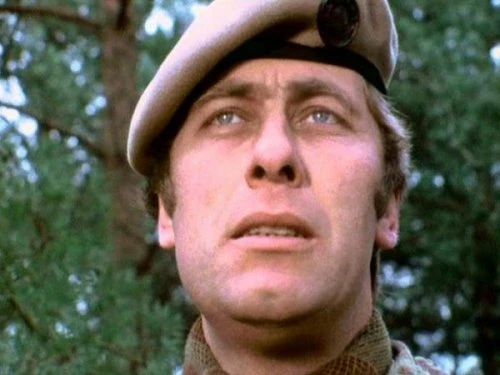
There are very few Doctor Who stories that don't heavily rely on the Doctor's companions, and The Three Doctors has them in abundance. This is, after all, the era of UNIT and the extended team of associates for the Doctor, although logistical problems meant that the hoped-for line-up had to change. Richard Franklin was unable to take on his formerly regular role of Mike Yates, while Frazer Hines, who had accompanied Troughton's Doctor as the faithful Jamie McCrimmon for almost his entire run, was too busy with Emmerdale Farm to take part in anything else around this time. This led to John Levene getting a much larger share of the action as the solidly reliable Sergeant Benton than he would otherwise have expected. Having met the Doctor in 1968's The Invasion, Benton recognised him in his Troughton phase, and the two of them share a great rapport in this story. They get to share an unforgettable exchange, with the unflappable Benton asking, “Just who is this Omega bloke?” leaving even the Second Doctor lost for words for a moment, before informing his friend that Omega is “one of the most powerful blokes in the cosmos!”
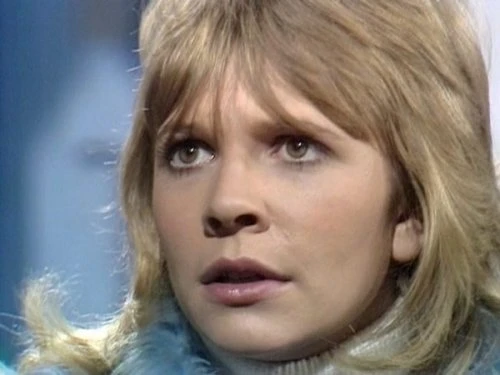
Equally, Katy Manning, current female lead of the show as Jo Grant, has some great chemistry with Troughton, albeit only for limited scenes as she is almost always paired up with her regular co-star Pertwee. Jo is as hippy-ish and floaty as we'll ever see her, convinced that she and the Doctor have died and gone to heaven-knows when they arrive in Omega's luxury quarry. It's maybe unsurprising then that she takes the news that her friend and mentor used to have a different face and personality, twice over, in her stride.
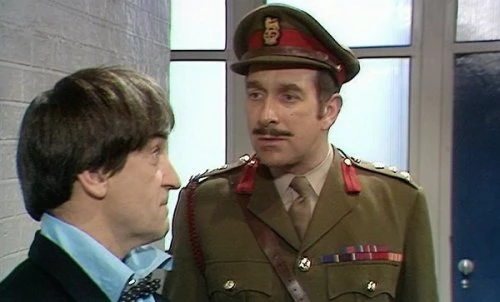
With both Benton and Jo handling themselves well, it's sadly left to the Brigadier to play the ditzy assistant. While Nicholas Courtney is as brilliant as ever in the role he was born to play, his character had gradually been degrading over the course of the run from the no-nonsense, highly skilled soldier dedicated to protecting our fair nation from threats otherworldly to the most confused and close-minded of all the main characters. The Three Doctors, though, is the first time we really have to endure the Brigadier in idiot-mode. Understandably wrong-footed by the appearance of the Second Doctor, he is seemingly completely unable to accept that the Doctor has used time travel to appear twice over. He remains convinced for most of the serial that the Doctor has reverted back to his previous face, and, while he admirably doesn't care what he looks like as long as he does the job, his pig-headedness is baffling. It gets worse when he refuses to believe that UNIT HQ has been pulled to another world, insisting that they've arrived on some beach somewhere, and uttering the timeless line “I'm fairly sure that's Cromer.” It's hilarious, but it's a shame to see the Brig's character so reduced.
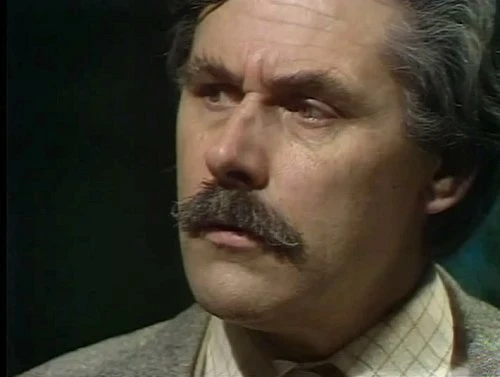
With the UNIT team in place, you'd think there'd be no room for additional characters to tag along, yet somehow, they're forced in. We have Rex Robinson (Warship, Six Days of Justice) as Dr. Tyler, a tweedy scientist with more than a little of Robert Winston about him. Tyler is the first to inform the Doctor of the faster-than-light signal, not that it provides much warning before they both end up abducted to Omega's world. Tyler wanders about the place refusing to believe what's happened to him, scratching equations in the sand and saying things like "e=mc2," which is the sort of thing television writers often think scientists say. He seems rather out of place, but even he is more essential to events than Mr. Ollis (Laurie Webb - Hancock's Half Hour). All Earthbound Pertwee stories must by law feature a country yokel, and Ollis fulfils that role for The Three Doctors. The gamekeeper finds himself transported to Omega's world by the Time Lord's blundering antimatter beast and has virtually no impact on the story whatsoever.
All this sounds like I'm being rather harsh on The Three Doctors, but, for all its visual shortcomings, plot problems and its nonsensical science, it's tremendous fun. It really is a party, with jelly and fireworks (well, gel beasts and antimatter explosions). The plot may be thin, but it exists purely as an excuse to have Pertwee and Troughton (and where possible, Hartnell) to bounce off each other, and this is endlessly entertaining. In the end, the Doctors are naturally victorious, tricking Omega into destroying his own world while they, somehow, end up back where they belong. The Time Lords are saved, as "the black hole goes supernova," restoring their power, and yes, this is impossible too.
In spite of his crimes against physics, the Time Lords forgive the Doctor his previous transgressions and end his exile. They remove the blocks on his memory, give him back the secrets of space-time travel, and even present him with a brand-new dematerialisation circuit so he can pilot his TARDIS properly. The era of the Doctor's exile on Earth is over, and he is free to explore, without continued contrivances to get him to other planets without breaking his sentence. In the event, the format of the series hardly changes, with the Doctor continuing to work with UNIT almost as much as he had in the previous three seasons. It isn't until Tom Baker is well established as the Doctor that he finally breaks ties with UNIT.
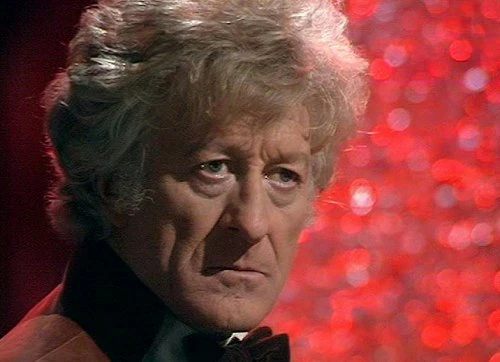
The Three Doctors may have been meant as nothing more than a little silly fun to mark the series' surprising longevity, but fifty years after its broadcast its impact is clear. Multi-Doctor team-ups became the traditional way to mark special occasions, up to The Power of the Doctor for the BBC's centenary celebrations in 2022. While Troughton would return to the role again in The Five Doctors and 1985's The Two Doctors, this would sadly be Hartnell's final performance. He died in 1975, aged 67.
The Time Lords would enjoy further exploration in the following years, although Omega was surprisingly forgotten about for some time, until 1983's Arc of Infinity, where he was played by Ian Collier. He would return to the role for Big Finish's eponymously titled release Omega in 2003. Stephen Thorne would again play the character in their 2015 release Gallifrey: Intervention Earth in 2015, in one of his final roles. Most recently, Cutaway Comics released an Omega comic series in 2022, which was then adapted into an audio release starring none other than Brian Blessed, perhaps the only actor who could hope to match Thorne for sheer shouting ability.
Review by Daniel Tessier (January 2022)


